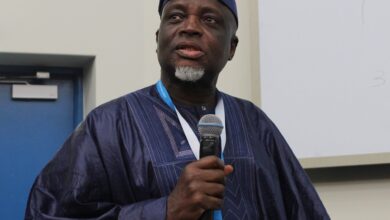Explainer: Supreme Court Judgement on Financial Autonomy to Local Government Areas In Nigeria

BY: Oluwaseye Ogunsanya
On Thursday, 11th of July 2024, the Supreme Court of Nigeria ruled that it is unconstitutional for state governors to hold funds allocated for the administration of the 774 local government areas (LGAs).
In the judgement delivered by a seven-man panel led by Justice Garba Lawal, the apex court held that the power of the government is divided into three arms of government, the Federal, the State and the Local Government.
The court declared that a State Government has no power to appoint a caretaker committee and a local government council, which is only recognisable with a democratically elected government.
Justice Agim who read the lead judgement declared, “I hold that the state’s retention of the local government funds is unconstitutional.
“Demands of justice requires a progressive interpretation of the law. It is the position of this court that the federation can pay LG allocations to the LGs directly or pay them through the states.’’
“In this case, since paying them through states has not worked, justice of this case demands that LG allocations from the federation account should henceforth be paid directly to the LGs.”
The judgment held that the local government council funds must be paid to only democratically elected local government councils stating that “anything other than this will be taken as a gross misconduct.”
“A declaration that the state government has no power or control to keep the local government council money or funds.
“A declaration that the local government council is entitled to the local government allocation.”
The apex court initially heard the suit between the federal and state governments on the autonomy of local governments on June 13 and reserved its judgement.
The suit, marked SC/CV/343/2024, was filed on behalf of the Federal Government by the Attorney General of the Federation and Minister of Justice, Lateef Fagbemi (SAN), and it sought full autonomy and direct fund allocation to the 774 local government areas (LGAs) in the country.
Fagbemi requested the Supreme Court to order that funds for LGAs managed by caretaker committees appointed by governors, rather than elected chairmen and councillors, be withheld.
The landmark ruling has received applause from many Nigerians commending the Bola Tinubu administration for removing the 774 Local Government Areas from the weight of some controlling and overbearing governors who have been accused of mismanaging funds meant for the administration of local governments. While there are also deferring opinions on the ruling.
What Next?
According to Justice Emmanuel Agim, who read the lead judgement, it is expected that the apex court orders are immediately enforced and complied with by state governors. By implication, the administration of Local Government will be altered remarkably as it has put a stop to State Governors’ arbitrary dissolution of elected executives of the third tier of government.
Similarly, in his reaction to the judgement on Thursday, the Attorney-General of the Federation (AGF) and Minister of Justice, Lateef Fagbemi, described it as a historic victory for the 774 local government areas, freeing them from the oppressive control of state governors. He added that their obligations and repercussions of failing to comply take immediate effect.
“I call it the ‘local government emancipation judgement’ because it truly frees local governments from past constraints. I hope local government officials will seize this opportunity to develop their areas.
“The ball is in the governor’s court. The judgement is unambiguous about their obligations and the repercussions of failing to comply, which take immediate effect,” Mr Fagbemi said.
What Happens to Governors Who Refuse to Comply to the Ruling?
The Supreme Court held that it is illegal for Governors to dissolve democratically elected Local Governments. It therefore ordered the Federal Government to withhold allocations of Local Governments governed by unelected officials appointed by the Governor.
The ruling also mandated States to ensure that their Local Government Areas are democratically elected, and that Governors cannot use their powers to dissolve democratically elected Local Government Councils.
“The amount standing to the credit of local government councils must be paid by the federation to the local government councils and not by any other person or body,” the judge said.
“The said amount must be paid to local government councils that are democratically elected.
“An order of injunction is hereby granted restraining the defendants from collecting funds belonging to the local government councils when no democratically elected local government councils are in place.”
How Will Local Council Development Areas (LCDAs) Fare With the Supreme Court Ruling?
Local Council Development Areas (LCDAs) are administrative bodies created by the State House of Assemblies but are not listed in the Constitution of the Federal Republic of Nigeria. They are created under the law of a State in the same manner as Local Government Areas are created but the difference between them and Local Government Areas is that while LGAs are listed in the Constitution, LCDAs are not.
The creation of new LCDAs in the Fourth Republic was pioneered by the Lagos State Government under the administration of Bola Tinubu. It led the state government into confrontation with then President Olusegun Obasanjo who eventually withheld statutory allocations to LGAs in Lagos. Obasanjo had insisted that federal revenue can only be allocated to the 774 LGAS listed in the 1999 Constitution. However, Obasanjo’s successor, the late President Umaru Yar’adua, released the withheld funds to Lagos LGAs and the state has sustained the LCDAS.
Thus LCDAs exist in Osun, Oyo, Ogun Ekiti, Ondo, Ebonyi and Nasarawa States even though the National Assembly has refused to amend the constitution to recognise them as stated in sections 8(5) and (6) of the Constitution which provides that the names and headquarters of newly created Local Government Areas must be submitted to the National Assembly and listed in Part I of the First Schedule to the Constitution.
Arise News reports that some Senior lawyers said LCDAs created by state governments are illegal, unconstitutional, and should be abolished immediately by state assemblies.
According to the report, the Senior Advocates of Nigeria (SANs) including Chief Mike Ozekhome, Dr. Joseph Nwobike, Professor of Constitutional Law and Governance, Professor Edoba Omoregie, Mr. Olu Daramola, Mr. Abiodun Olatunji, Mr. John Baiyeshea, Mr Dayo Akinlaja, Mallam Ahmed Raji and a former National Chairman of the Abuja Branch of the Nigerian Bar Association (NBA), Mr. Moses Ebute all agreed that the survival of Local Council Development Authorities (LCDAs) in some states now depends on the benevolence of the LGAs from which they were carved out as well as the magnanimity of the state governments that have them.
Ozekhome said going by the judgement of the apex court, all the LCDAs would no longer get money from the federation account, he added that only those LGs recognised by the constitution would benefit from the federation account.
He said: ‘’As far as I am concerned, the judgement by the Supreme Court is very clear. As clear as a clean whistle. It simply says that the method of distribution of the allocation meant for the local government councils by state governors has been a thieving one.’’
‘’In Sections 162 subsections 4,5, and 6: the money should go directly to the local government councils that are democratically elected in accordance with Section 7 of the Constitution of the Federal Republic of Nigeria 1999 (As Amended). What the judgement means is that any other form of local government council whether you call them LCDAs is handpicked or appointed by a governor, as many are across the country now.
They are unconstitutional, invalid and illegal.
‘’What does this mean? Only those Local Government councils recognised by the Constitution will benefit from the federation account.
Will State Electoral Commissions Be Scrapped?
The Supreme Court ruling was silent on the status of State Electoral Commissions (SIECs) saddled with the responsibility of organising Local Government elections periodically but there have been agitations and attempts to amend the Constitution to pave the way for scrapping of SIECs and transferring the conduct of local government polls to INEC.
In May, the Attorney General of the Federation and Minister of Justice, Lateef Fagbemi proposed that State Independent Electoral Commissions (SIECs) should be dispensed with and their powers should be transferred to the Independent National Electoral Commission (INEC).
Fagbemi said Governors have exploited the flaws in certain sections of the 1999 constitution, effectively rendering Local Governments powerless and irrelevant adding that these inadequacies have allowed the Governors to abuse the rights of Local Governments by using SIECs to impose leaders on them through sham elections.
He said other Governors who do not conduct sham polls appoint vassals as caretaker leaders for the Local Governments. He thereby called for a robust constitutional amendment that will remove all hindrances to the development of local governments, and bolster their ability to fulfil constitutionally recognised mandates.
Similarly, the Chairman of the Independent National Electoral Commission (INEC), Mahmood Yakubu said State Independent Electoral Commissions (SIECs) should conduct proper elections instead of simply crowning candidates.
“State governors should allow the SIECs to have greater capacity for independent action. Many of the SIECs have no functional offices in the LGAs in their states and cannot recruit their permanent staff. In some states, the SIECs are either not properly constituted, have no tenure security, or have their critical functions taken over by government officials. Some SIECs are only constituted on the eve of elections and dissolved thereafter,” he said.
Successive assemblies of the National Assembly have attempted to amend the Constitution at different times to allow INEC to take over Local Government Elections, but to no avail.
Section 197 of the 1999 Constitution (as amended) establishes SIEC for each state, and the Third Schedule, Part II, establishes the functions of SIECs. Also, item 22 of the Exclusive-Legislative List excludes elections to the Local Government from the duties of the Federal Government.
Presently, no fewer than 19 state governors are running their local councils with transition or caretaker committees.
Functions of Local Government Areas
The fourth schedule of the Nigerian constitution spells out the functions of the local government to include:
- The consideration and the making of recommendations to a State commission on economic planning or any similar body on –
(i) The economic development of the State, particularly in so far as the areas of authority of the council and of the State are affected, and
(ii) Proposals made by the said commission or body;
- Collection of rates, radio and television licences;
- Establishment and maintenance of cemeteries, burial grounds and homes for the destitute or infirm;
- Licensing of bicycles, trucks (other than mechanically propelled trucks), canoes, wheelbarrows and carts;
- Establishment, maintenance and regulation of slaughterhouses, slaughter slabs, markets, motor parks and public conveniences;
- Construction and maintenance of roads, streets, street lightings, drains and other public highways, parks, gardens, open spaces, or such public facilities as may be prescribed from time to time by the House of Assembly of a State;
- Naming of roads and streets and numbering of houses;
- Provision and maintenance of public conveniences, sewage and refuse disposal;
- Registration of all births, deaths and marriages;
- Assessment of privately owned houses or tenements for the purpose of levying such rates as may be prescribed by the House of Assembly of a State; and
- Control and regulation of
(i) Out-door advertising and hoarding,
(ii) Movement and keeping of pets of all description,
(iii) Shops and kiosks,
(iv) Restaurants, bakeries and other places for sale of food to the public,
(v) Laundries, and
(vi) Licensing, regulation and control of the sale of liquor.
Additionally, section 2 of the fourth schedule states the functions of the local government in partnership with the state government. These are: provision and maintenance of health services, development of natural and agricultural resources, except for the exploitation of mineral resources, and provision of primary, adult and vocational education.
Edited by Habeeb Adisa




